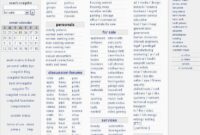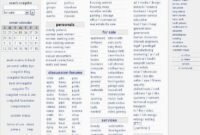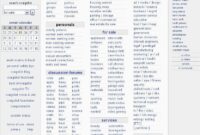Crash Pickup Trucks For Sale: Your Comprehensive Guide to Damaged Deals pickup.truckstrend.com
The world of vehicle sales often conjures images of pristine, showroom-ready models or gently used cars with minimal wear. However, beneath this polished surface lies a vast, dynamic market for "crash pickup trucks for sale." These aren’t just vehicles with a few dings; they are trucks that have sustained significant damage, often deemed uneconomical to repair by insurance companies, leading them to be sold at a fraction of their pre-damage value. Far from being scrap, these trucks represent unique opportunities for a specific kind of buyer – from the seasoned mechanic looking for a profitable restoration project to the parts dealer seeking valuable components, or even the DIY enthusiast eager to learn and save money.
This comprehensive guide will delve deep into the realm of crash pickup trucks for sale, exploring what they are, why someone might buy one, where to find them, and the crucial considerations necessary to turn a damaged deal into a successful venture. Whether you’re a professional in the automotive industry or a curious individual seeking an unconventional path to truck ownership, understanding this market is key to navigating its complexities and unlocking its potential rewards.
Crash Pickup Trucks For Sale: Your Comprehensive Guide to Damaged Deals
What Exactly Are "Crash Pickup Trucks"?
When we talk about "crash pickup trucks," we’re referring to vehicles that have been involved in accidents or suffered other forms of significant damage, rendering them "totaled" by an insurance company. This "total loss" designation doesn’t necessarily mean the truck is beyond repair; rather, it implies that the estimated cost of repairs exceeds a certain percentage of the vehicle’s actual cash value (ACV) before the incident. This percentage varies by state and insurer but typically ranges from 70% to 100%.
The damage can manifest in various forms:
- Collision Damage: The most common type, ranging from minor fender benders to severe structural deformation.
- Flood Damage: Water ingress can cause extensive electrical and mechanical issues, often leading to hidden problems.
- Fire Damage: Can affect electrical systems, interior, and structural integrity.
- Vandalism/Theft Recovery: Trucks recovered after theft might have damaged ignitions, missing parts, or body damage.
- Hail Damage: While often cosmetic, severe hail can total a vehicle if repair costs (bodywork, paint) are high.
- Mechanical Damage: Less common for a "crash" designation, but severe engine or transmission failure can also lead to a total loss if the repair cost is prohibitive.

A critical aspect of these vehicles is their title status. Most crash trucks will carry a salvage title, indicating that the vehicle has been declared a total loss by an insurance company. Once repaired and inspected to meet state safety standards, some states allow these vehicles to be issued a rebuilt or reconstructed title. Understanding these distinctions is paramount, as they impact legality, insurability, and future resale value.
Why Consider Buying a Crash Pickup Truck? The Benefits Unveiled
The primary allure of crash pickup trucks is undoubtedly the significant cost savings. A truck with a salvage title can often be purchased for a fraction of the price of an equivalent model with a clean title. This affordability opens up several compelling opportunities:
- Cost-Effective Ownership: For individuals with mechanical skills or access to affordable labor, repairing a moderately damaged truck can result in acquiring a fully functional vehicle at a substantially lower overall cost than buying a used one.
- Parts Vehicle Goldmine: Many buyers acquire crash trucks solely for their components. If you need a specific engine, transmission, axle, or even interior parts for another truck, buying a damaged vehicle with an intact component can be far cheaper than purchasing new or even used individual parts.
- Project Vehicle for Enthusiasts: For those who enjoy hands-on work, a crash truck can be the ultimate restoration or customization project. It provides a blank canvas to build a unique vehicle, learn new skills, and potentially even create a showpiece.
- Export Opportunities: In many developing countries, the cost of labor is lower, and access to new parts is limited. Salvage vehicles, even heavily damaged ones, can be cost-effectively repaired and put back on the road, making them valuable commodities for exporters.
- Learning Experience: For aspiring mechanics, bodywork specialists, or simply curious individuals, a crash truck offers an invaluable real-world learning platform to understand vehicle mechanics, body repair, and the re-titling process.
Who Buys Crash Pickup Trucks? Understanding the Market
The buyers of crash pickup trucks are a diverse group, each with specific motivations:
- Professional Auto Body Shops and Mechanics: These businesses have the expertise, tools, and resources to efficiently repair damaged vehicles. They might buy a crash truck, repair it, and then sell it for a profit, or use it as a parts donor for other customer vehicles.
- Used Car Dealers Specializing in Rebuilt Vehicles: Some dealerships focus specifically on buying salvage vehicles, repairing them, obtaining rebuilt titles, and selling them at a competitive price point.
- Parts Dealers and Dismantlers: These entities purchase crash vehicles to strip them for usable parts, which are then sold individually. This is a crucial supply chain for the automotive aftermarket.
- DIY Enthusiasts and Hobbyists: Individuals with a passion for cars, a knack for mechanics, and the time to invest often find crash trucks to be rewarding personal projects.
- Exporters: Companies and individuals who buy damaged vehicles in one country to ship and repair them in another where labor and parts costs are lower.
- Budget-Conscious Consumers (with caution): While less common, some individuals on a very tight budget with significant mechanical aptitude might attempt to repair a crashed truck for personal use, understanding the inherent risks and challenges.
The Buying Process: Where to Find Crash Pickup Trucks
Finding crash pickup trucks requires knowing the right channels, as they are not typically sold on traditional used car lots.
-
Online Salvage Auctions: These are the largest and most accessible platforms.
- Copart: One of the biggest global online vehicle auction companies, offering a vast inventory of salvage, clear title, and wrecked vehicles. They cater to licensed dealers and the public (often through brokers).
- Insurance Auto Auctions (IAAI): Another major player, similar to Copart, offering a wide range of damaged vehicles from insurance companies.
- Other Online Platforms: Smaller regional auctions or specialized sites may also exist.
- How it Works: Users bid on vehicles. Most require a broker for individuals without a dealer license, or specific state licenses. Detailed photos and basic information are provided, but physical inspection is highly recommended.
-
Local Tow Yards and Impound Lots: Sometimes, vehicles that are never claimed after an accident or impoundment are sold directly by tow yards or at public auctions they organize. These can be hidden gems but often require quick decision-making.
-
Direct from Insurance Companies: While less common for direct public sales, insurance companies are the primary source for salvage auction inventory. Some larger companies might have specific programs or direct sales for certain vehicles.
-
Specialized Salvage Dealers: A few dealerships focus exclusively on selling salvage or rebuilt title vehicles. They often handle the repair and re-titling process themselves, selling a "ready-to-drive" product, albeit at a higher price than an auction.
-
Private Sellers (Rare for Severe Damage): Occasionally, an individual might try to sell their totaled vehicle privately to avoid the insurance process or if their vehicle wasn’t insured. These require extreme caution due to potential lack of documentation or transparency regarding damage.
Crucial Considerations Before Buying a Crash Pickup Truck
Purchasing a crash pickup truck is a high-risk, high-reward endeavor. Thorough due diligence is non-negotiable.
-
Damage Assessment: The Devil is in the Details
- Visual Inspection (Critical): If possible, physically inspect the truck. Look beyond obvious body damage for hidden issues: frame integrity (buckling, twisting), suspension damage, fluid leaks, deployable airbags (if deployed, replacement is costly and complex), engine/transmission damage, and interior water damage.
- Photos/Videos: For online auctions, scrutinize every available photo and video. Request more if needed. Look for reflections that might indicate warped panels or ripples.
- Repair Estimate: Get a professional estimate for the repairs before bidding or buying. Factor in labor, parts (new OEM, aftermarket, or used salvage parts), and paint.
- VIN Check: Run a comprehensive VIN check (e.g., Carfax, AutoCheck) to see the vehicle’s history, previous accidents, and title brands (salvage, flood, fire, etc.).
-
Understanding Title Status: Your Legal Gateway
- Salvage The vehicle is declared a total loss. It cannot be legally driven on public roads until repaired and issued a new title.
- Rebuilt/Reconstructed Issued after a salvage vehicle has been repaired and inspected to meet state safety standards. It can then be registered and insured, but the "rebuilt" brand will always remain, affecting resale value.
- Flood Indicates significant water damage, which can lead to chronic electrical issues, mold, and corrosion. Often best to avoid unless specifically looking for parts.
- State-Specific Regulations: Research your state’s specific requirements for rebuilding and re-titling salvage vehicles. This process varies widely and can be complex.
-
Cost Analysis: Beyond the Purchase Price
- Purchase Price: Your winning bid or agreed-upon price.
- Auction Fees: Buyer’s fees, gate fees, Internet bid fees, storage fees can add hundreds or even thousands to the cost.
- Transportation Costs: How will you move a non-running vehicle from the auction yard to your repair location? Towing, flatbed, or specialized transport.
- Parts Costs: Research the cost and availability of necessary parts. OEM parts are expensive; aftermarket or used parts are cheaper.
- Labor Costs: If you’re not doing the work yourself, professional labor rates are high.
- Re-titling and Inspection Fees: State fees for inspections and new titles.
- Insurance: Getting insurance on a rebuilt title vehicle can be more challenging and expensive.
-
Your Skill Level and Resources: Be honest about your mechanical and bodywork skills. Do you have the tools, space, and time for the repair? If not, factor in professional repair costs.
-
Availability of Parts: Common models (e.g., Ford F-150, Chevy Silverado) generally have readily available new, aftermarket, and used parts. Rare or older models might have scarce and expensive parts.
-
Resale Value: Even after a successful repair and re-titling, a vehicle with a rebuilt title will typically have a lower resale value than an equivalent clean-title vehicle. This is crucial if your goal is to eventually sell it.
-
Safety Implications: Structural damage, deployed airbags, or compromised braking systems can pose serious safety risks if not repaired correctly. Prioritize safety over cost-cutting.
Tips for a Successful Purchase
- Set a Strict Budget: Determine your maximum total spend (purchase + repair + fees) and stick to it. It’s easy to get carried away in auctions.
- Research Specific Models: Understand common failure points or expensive repairs for the particular truck model you’re considering.
- Bring an Expert: If possible, have a trusted mechanic or body shop professional accompany you for physical inspections.
- Understand Auction Rules: Familiarize yourself with the terms and conditions, fees, and bidding increments of the specific auction platform.
- Be Patient: Don’t rush into a purchase. There will always be more vehicles available. Wait for the right deal.
- Factor in "Unexpected" Costs: Always add a contingency fund (15-25% of your estimated repair cost) for unforeseen issues.
Challenges and Solutions
- Hidden Damage:
- Challenge: Damage might be more extensive than initially appears, especially internal or structural issues.
- Solution: Thorough inspection, VIN check, and professional assessment before purchase. If buying online, assume the worst and factor it into your bid.
- Re-titling Hassles:
- Challenge: State-specific requirements for inspections, documentation, and fees can be complex and time-consuming.
- Solution: Research your local DMV/DOT regulations before you buy. Talk to others who have gone through the process.
- Repair Complexity and Cost Overruns:
- Challenge: Repairs can be more difficult or expensive than anticipated, especially if specialized tools or expertise are required.
- Solution: Get multiple repair estimates, prioritize essential repairs, and be realistic about your own capabilities. Consider sourcing used parts to save money.
- Parts Sourcing:
- Challenge: Finding specific parts, especially for older or less common models, can be difficult.
- Solution: Utilize online parts aggregators, junkyards, specialized dismantlers, and online forums. Be prepared for potential shipping delays.
- Safety Concerns:
- Challenge: Improper repairs, especially to structural components or safety systems (airbags, brakes), can compromise the vehicle’s safety.
- Solution: Always prioritize safety. If structural damage is severe, consider it a parts vehicle. For repairs, follow manufacturer specifications and consider professional assistance for critical systems.
| Make/Model | Year | Estimated Damage Level | Estimated Salvage Price Range | Potential Repair Cost (Excl. Labor) | Notes |
|---|---|---|---|---|---|
| Ford F-150 | 2018 | Moderate Front Impact | $3,500 – $7,000 | $4,000 – $8,000 | Hood, bumper, grille, radiator, minor frame pull. Good project. |
| Chevrolet Silverado | 2016 | Severe Side Impact | $2,000 – $5,000 | $6,000 – $12,000 | Cab damage, door replacement, B-pillar repair. Requires skilled bodywork. |
| Ram 1500 | 2019 | Light Rear End | $5,000 – $9,000 | $2,500 – $5,000 | Bumper, tailgate, bed repair. Mostly cosmetic. |
| Toyota Tacoma | 2017 | Flood Damage (Fresh) | $1,500 – $4,000 | $7,000 – $15,000+ | Electrical, interior, rust potential. Best for parts or very skilled. |
| GMC Sierra | 2015 | Total Loss (Fire) | $1,000 – $3,000 | $10,000 – $20,000+ | Engine bay fire. Likely a parts donor vehicle. |
| Nissan Titan | 2014 | Minor Collision | $2,500 – $5,000 | $1,500 – $3,500 | Fender, headlight, minor suspension. Relatively straightforward. |
Note: The prices in this table are illustrative estimates only. Actual prices for crash pickup trucks vary dramatically based on the specific damage, make, model, year, mileage, location, and auction market conditions. Repair costs are estimates for parts only and do not include labor.
Frequently Asked Questions (FAQ)
Q1: What is a salvage title?
A1: A salvage title is issued to a vehicle that has been declared a "total loss" by an insurance company. This means the cost of repairs exceeds a certain percentage of its pre-damage value.
Q2: Can I drive a truck with a salvage title?
A2: No, generally a vehicle with a salvage title cannot be legally driven on public roads. It must be repaired, inspected by state authorities, and then issued a "rebuilt" or "reconstructed" title before it can be registered and insured for road use.
Q3: Is it safe to buy a crashed truck?
A3: It can be safe, but it depends entirely on the extent of the damage and the quality of the repairs. Structural damage, deployed airbags, or compromised braking systems can pose serious risks if not repaired professionally and correctly. Always prioritize safety.
Q4: How much can I save by buying a crashed truck?
A4: Significant savings are possible. The initial purchase price of a salvage truck can be 30% to 70% less than a clean-title equivalent. However, you must factor in all repair costs, parts, labor, transportation, and re-titling fees to determine your actual total savings.
Q5: What are the steps to re-title a repaired salvage truck?
A5: The process varies by state but generally involves: 1) Repairing the vehicle, 2) Obtaining receipts for all parts and labor, 3) Scheduling and passing a state-mandated safety and anti-theft inspection, and 4) Applying for a new "rebuilt" or "reconstructed" title at your local DMV.
Q6: Are there financing options for salvage vehicles?
A6: Most traditional lenders do not offer financing for vehicles with a salvage title. You will likely need to pay cash or secure a personal loan. Once the vehicle is repaired and re-titled as "rebuilt," some lenders might consider financing, but interest rates may be higher.
Q7: Where are the best places to find crashed trucks?
A7: The largest and most common places are online salvage auction platforms like Copart and IAAI. You can also find them at local tow yards, impound lot auctions, or through specialized salvage vehicle dealers.
Conclusion
The market for crash pickup trucks for sale offers an intriguing proposition for those willing to navigate its complexities. It’s a realm where damaged goods can become valuable assets, whether as a meticulously restored vehicle, a source of crucial parts, or a challenging yet rewarding project. While the allure of significant cost savings is undeniable, success hinges on a blend of mechanical aptitude, thorough research, realistic budgeting, and a clear understanding of the re-titling process.
Buying a crash truck is not for the faint of heart or the unprepared. It demands patience, diligence, and often, a willingness to get your hands dirty. However, for the informed and resourceful individual, a crash pickup truck can transform from a seemingly hopeless wreck into a testament to ingenuity and a truly economical means of acquiring a robust and capable vehicle. Approach with caution, arm yourself with knowledge, and you might just find your next great automotive adventure.


